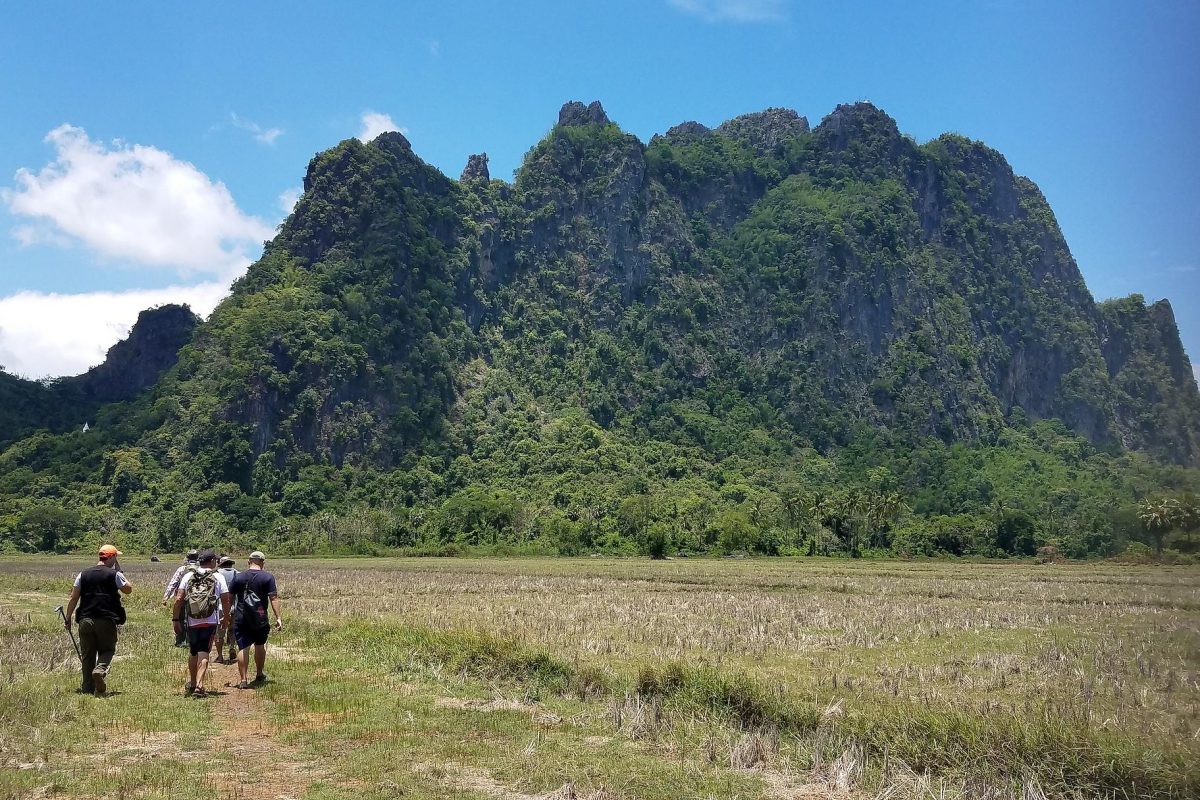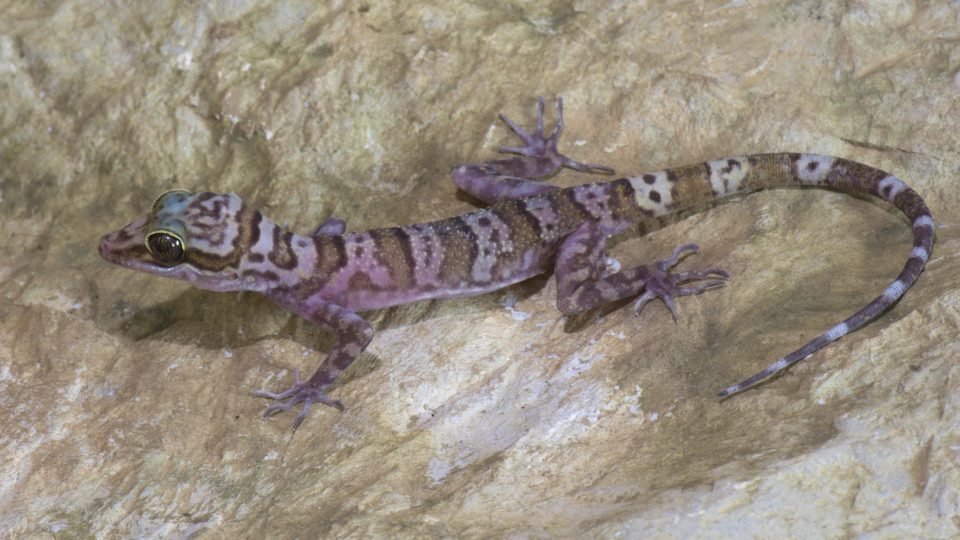American and Southeast Asian scientists have discovered 19 previously unknown gecko species in remote parts of Myanmar. The discoveries highlight the biodiversity of isolated limestone formations known as karsts, which are under threat of destruction by local cement companies.
The discoveries were made by teams led by biologist Lee Grismer, a professor at La Sierra University in California. The team made expeditions to Myanmar in 2016 and 2017, and scientific journals began to publish their findings last month. More articles are slated to come out this month, including one about 12 new bent-toed geckos from the genus Cyrtodactylusis, which will come out in the second week of October in the Zoological Journal of the Linnean Society.
The articles highlight the geckos’ precarious occupation of microhabitats in an unexplored, ecologically rich region that is unprotected from cement quarrying and other development. Limestone is a key material in the making of cement.
“Until karst habitats in Myanmar are thoroughly investigated, a significant portion of this country’s herpetological diversity will remain underestimated and unprotected,” Grismer wrote in one of the scientific manuscripts.

Perry Wood, a researcher who participated in both exhibitions, said: “Some of the regions where we are discovering these new micro-endemic species are very small, and further development of these areas could be a major threat to the existence of these species.
“We need to document the biodiversity of the planet. However, we cannot control the politics in these countries, sometimes making it impossible for us to work.”
Luckily, the research teams had the help of local monks, who knew where to find the geckos, and military units, which escorted them where they needed to go.
Wood said: “The excitement of discovering a new species that no one has ever seen before never gets old. During these two trips, we found so many new species, it was like being a kid in a candy store.”
The researchers explored 18 limestone caves during the two trips and identified 40 more caves and 44 karsts that will be explored during future expeditions, one of which will begin on Oct. 12 in a part of Kayah State where a focused herpetological expedition has not been conducted before.
Grismer will also give a lecture on the new gecko species at Mandalay University on Nov. 5.




